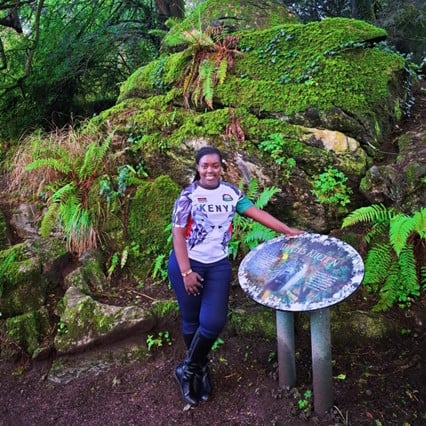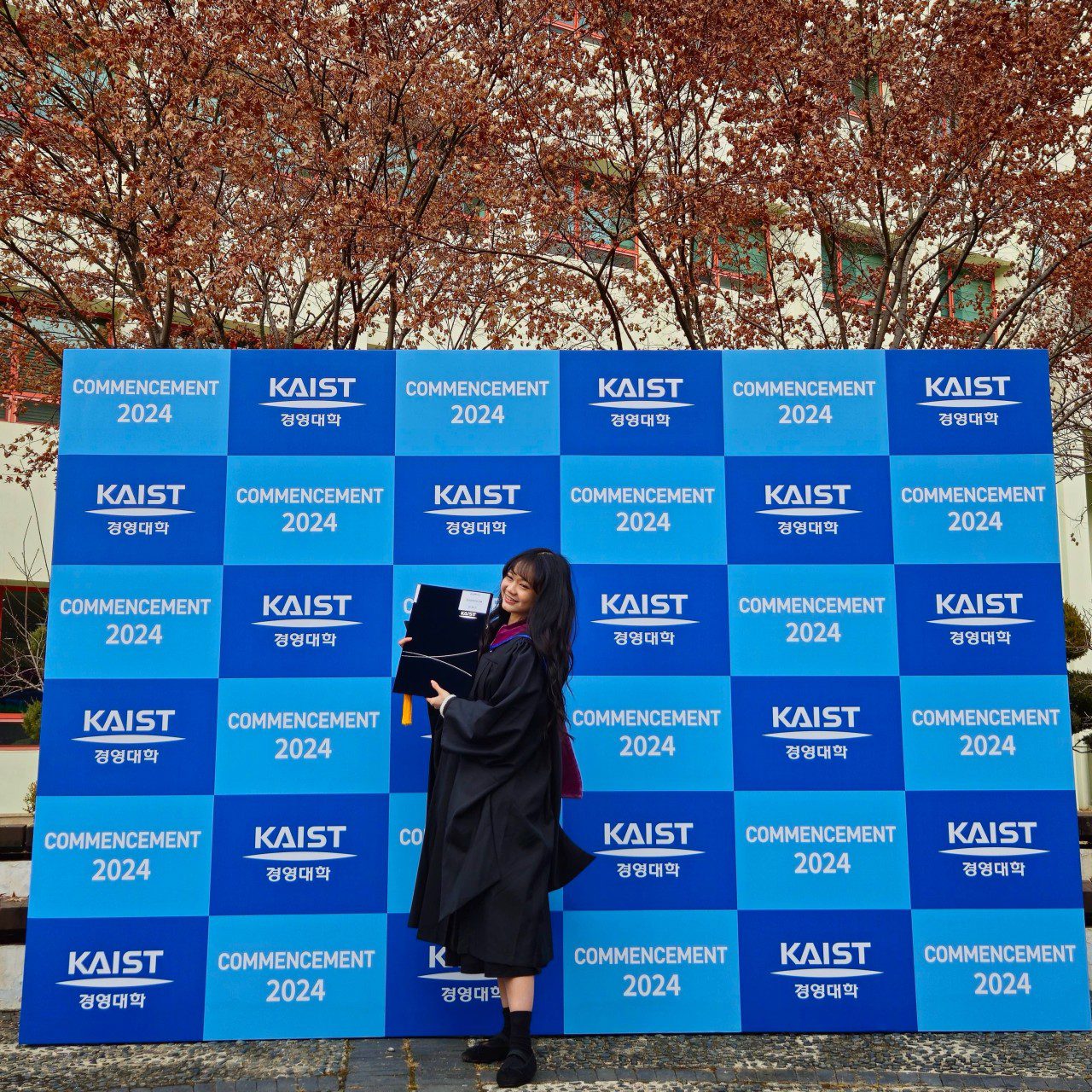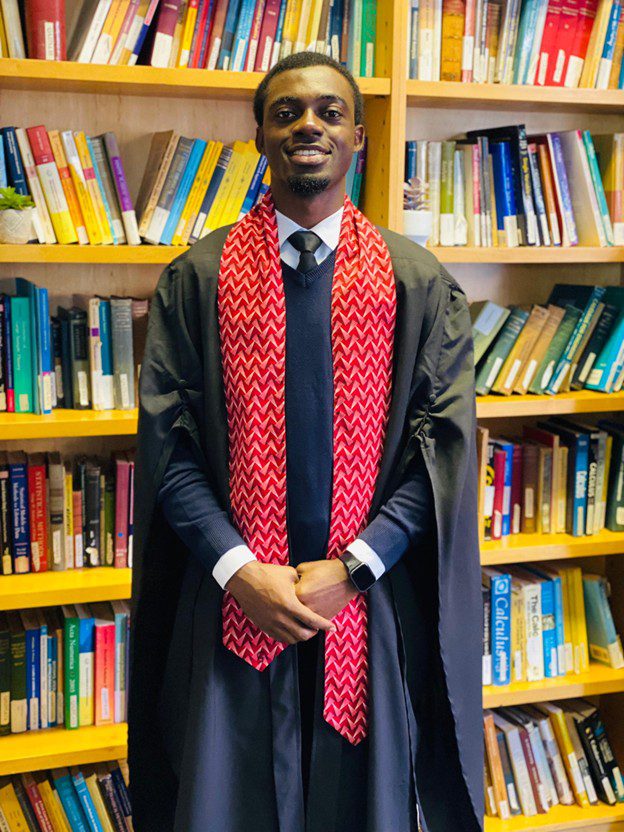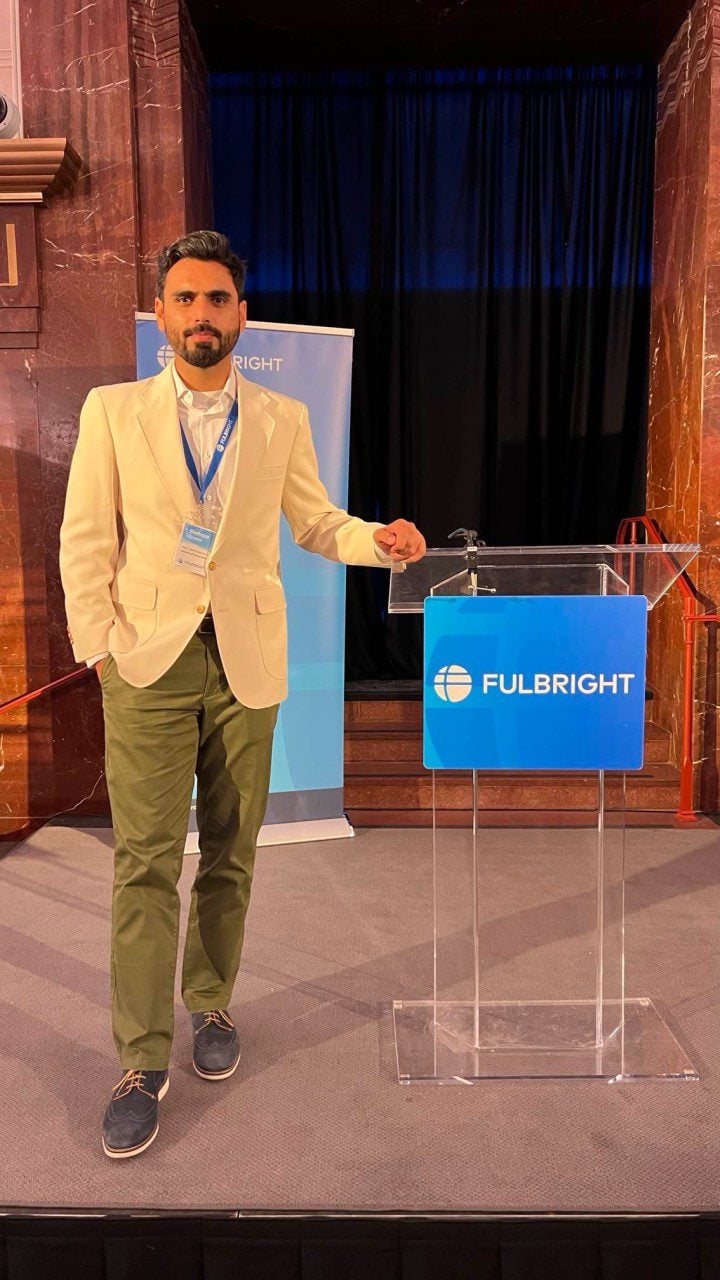How a Kenyan Scholar Secured the Irish GOI‑IES Scholarship to Pursue Her Master’s in Journalism & Digital Communication at Griffith College, Dublin
University: Griffith College, Dublin
Degree: Master’s in Journalism & Digital Communication
Previous Education: Bachelor’s in Communication and Public Relations, Moi University (Kenya)
Scholarship: Government of Ireland International Education Scholarship (GOI-IES) – Full Funding
Social Media

The Journey
My name is Elizabeth Biwott, and I’m originally from Kenya. A communicator at heart and a storyteller by training, I’m currently pursuing a Master’s in Journalism & Digital Communication at Griffith College in Dublin, Ireland. My professional journey across East Africa has spanned business development, project coordination, and public engagement experiences that have sharpened my ability to listen deeply, craft compelling narratives, and build meaningful connections. I’m now carving a niche at the intersection of media and the Sustainable Development Goals, using journalism to enhance strategic communication and harness the power of digital platforms to drive impact in the renewable energy sector and beyond.
Government of Ireland International Education Scholarship (GOI-IES) Details
I received the Government of Ireland International Education Scholarship (GOI-IES) to study at Griffith College, Dublin. This prestigious award fully covers tuition and provides a €10,000 stipend for living expenses for one academic year.
Were You Offered any Other Scholarships?
I had applied for several other scholarships, including Chevening (five times), but the GOI-IES was the only one I was awarded.
Educational Background
I hold a Bachelor’s degree in Communication and Public Relations from Moi University in Kenya. I graduated with a 2:1 (second upper-class division). My academic performance and professional experience in communications, media, and energy policy laid a strong foundation for applying to a graduate program focused on journalism and digital advocacy.
How Did You Prepare to Apply to Griffith College?
I researched institutions and scholarship opportunities online through Global Scholarship pages, LinkedIn, and academic forums. Even though Ireland is an English-speaking country and my undergraduate program was in English, I was still expected to present an English test certificate as proof of my language proficiency. I took the Duolingo English Test, as this is now acceptable. I should note that this was only required at the VISA application stage. No English test was required while applying to Griffith College or for the scholarship.
How Did You Prepare to Apply for the GOI-IES Scholarship?
I spent significant time understanding what the scholarship valued. For GOI-IES, I emphasized my commitment to social impact and climate communication. IN the course of my online research, I chanced on the Global Ireland 2025 document that formed the basis of most of the essay responses. I also contacted some previous scholars and alumnae who would help in reviewing my essays once I was done drafting them.
How Is (was) Your Experience at Griffith College?
My experience at Griffith College has been enriching. I’ve met diverse peers, learned from supportive lecturers, and participated in extracurricular activities such as volunteering and student journalism.
How Do You Rate Griffith College Academically and Why?
Griffith College ranks among Ireland’s top private higher education institutions, particularly known for its excellence in media, journalism, and communications. Its Faculty of Journalism and Media Communications is one of the most highly regarded in the country, consistently producing graduates who are industry-ready and well-versed in both traditional and digital storytelling. The college’s academic reputation in this field is supported by a strong emphasis on practical training and close links to Ireland’s media industry.
What truly sets Griffith apart is its hybrid teaching model, which blends classroom theory with immersive, real-world experiences. As a student journalist, I have had the opportunity to attend a live event coverage at the Aviva Stadium covering the Leinster vs Muster United Rugby Championship derby (April 2025), participated in a media launch, and engage with guest lecturers who are actively working in the industry from seasoned journalists to media strategists and broadcasters. Access to a fully equipped on-campus radio studio provides invaluable technical training, while modules often include outdoor production, podcasting, and mobile journalism tasks.
Additionally, Griffith facilitates full membership with the National Union of Journalists (NUJ) for students, which is not only a mark of credibility but also opens up access to a professional network that supports career development, ethics, and press freedom. This holistic, hands-on approach makes Griffith College not just academically strong but a truly empowering space for aspiring journalists and media professionals.
How Does Griffith College Support International Students?
Griffith College has a vibrant international office that provides orientation, visa support, academic guidance, and integration activities. They’ve made the transition smooth for me as a first-time student abroad.
Are Your Classes Conducted in English or the Country’s Native Language?
All my classes are conducted in English.
Would Potential Students Have Any Problems Academically, Not Knowing the Native Language of the Country?
Not at all. Ireland is an English-speaking country, and international students can comfortably study and communicate without needing to learn another language.
What Do You Think Made Your Application Stand Out?
Reflecting on what made my application stand out, I believe its alignment with Ireland’s Global Ireland 2025 strategy, particularly its focus on enhancing Ireland’s global visibility through education, was pivotal. I highlighted:
a) Global Positioning:
I emphasized how studying in Ireland would align with the national ambition to promote Ireland as a global education hub, targeting a 14% share of international students. By showcasing my goals to build international media networks and collaborations, I demonstrated my commitment to becoming a strong ambassador for Ireland's cultural and educational presence worldwide. This sense of shared vision likely resonated with evaluators.
b) Doubling Scholarship Impact:
I referenced Ireland’s plan to expand the Government of Ireland International Education Scholarships from 60 to 120 recipients by 2025. Positioning myself as a competitive candidate within this framework, I detailed my potential to leverage the program’s support to deepen Ireland–Kenya connections, in line with the scheme’s goal to strengthen bilateral ties. This helped frame my candidacy as strategic and mutually beneficial
Overall, I believe my application stood out by clearly linking my personal and professional aspirations to the strategic priorities of Global Ireland 2025, showing that investing in me is not just about supporting one student but advancing Ireland’s ambition to become a more visible, globally engaged nation through education and cultural influence.
What Would You Have Done Differently if You Were Going Through the Process Again?
If I had the chance to go through the GOI-IES application process again, the biggest thing I would do differently is start much earlier. When I began my application, I had a strong vision of why I wanted to pursue my Master’s in Journalism & Digital Communication in Ireland, but I underestimated how much time it would take to effectively communicate that vision in a compelling way across all the application materials, especially the essays and personal statement.
Looking back, I believe that starting the process 2–3 months earlier would have given me the breathing room to refine my essays through multiple rounds of feedback, seek more specific input from mentors, and tailor each section of the application more strategically. I would also have taken more time to research previous awardees, which could have helped me better understand how to align my story with the mission of the scholarship.
Another thing I would have done differently is approach my recommendation requests more proactively. I did secure strong letters from individuals who knew my work well, but had I reached out earlier, I could have offered them more detailed guidance on what to highlight, especially how my work connected to Ireland’s development goals, sustainability priorities, and the values of the GOI-IES program.
Lastly, if I had started earlier, I would have had time to do a mock interview or informal presentation about my motivation for applying. Even though there wasn’t an official interview, the process of rehearsing how I would “pitch” my goals could have helped me sharpen my written responses and improve my confidence throughout the process. That said, the process itself was an incredible learning curve. While I’m proud of how far I’ve come, reflecting on what I could have done differently only reinforces how much more thoughtful, intentional, and organized I plan to be in future applications and opportunities.
What Advice Would You Give Those Looking to Apply for a Similar Scholarship?
Be authentic in your application. Let your story, values, and goals shine through. Align your experience with the mission of the scholarship, and don’t be discouraged by past rejections; every ‘no’ is preparing you for the right ‘yes’.
Want to submit your
scholarship journey?
Submit Your Story Here!
More Scholarship Recipients

My name is Vania Estrellita Soegiarto, and I am from Indonesia. I pursued a Finance MBA at KAIST Business School in South Ko .... Read more

Hello, I’m Toyeeb Olamilekan Abubakar from Nigeria. I earned a Bachelor of Science degree in Statistics from the Universit .... Read more

My name is Shehryar Jafar, and I’m from Karachi, Pakistan. I’m currently a PhD student in Electrical Engineering at the .... Read more

Leave A Comment